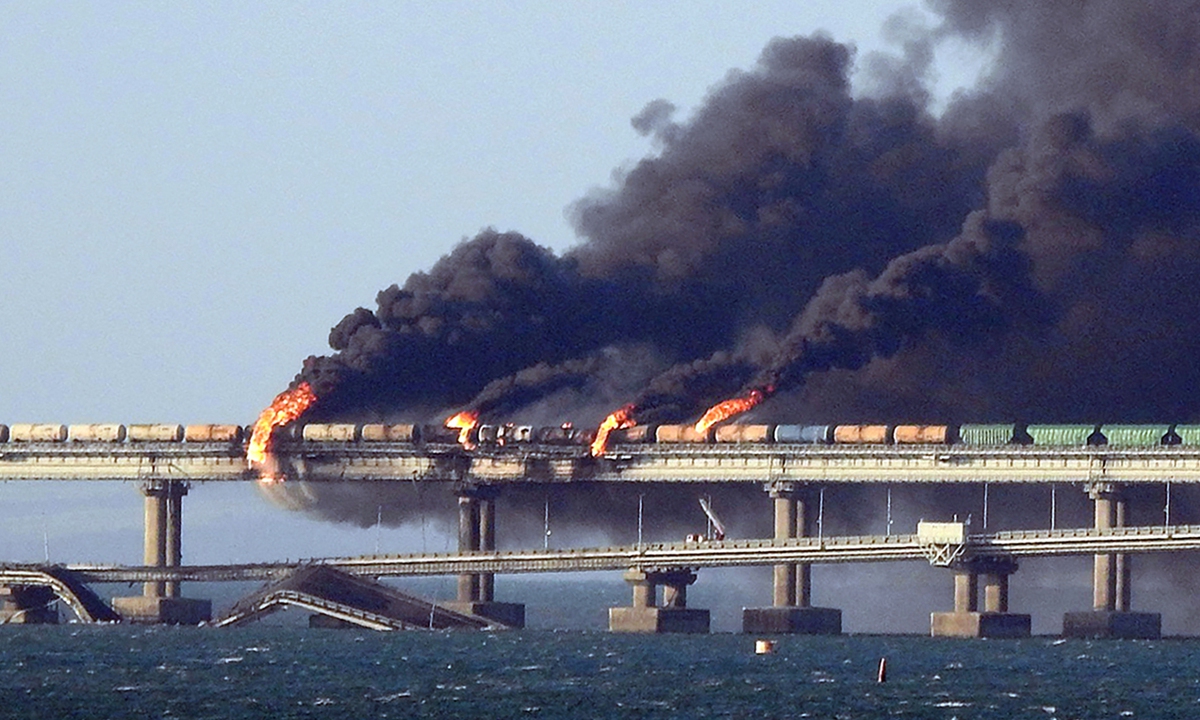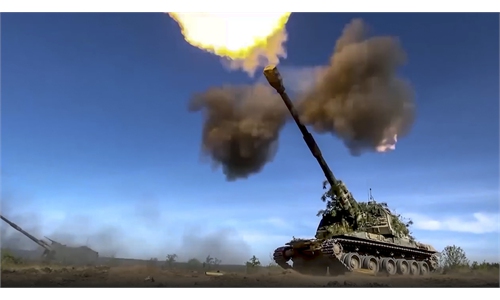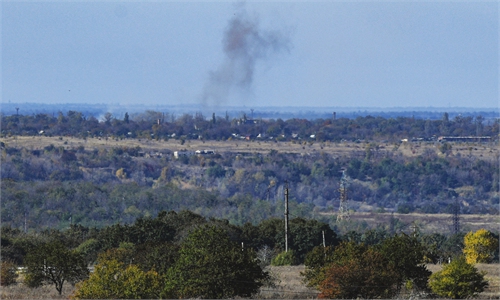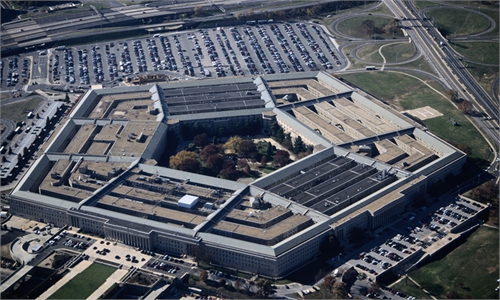
Black smoke billows from a fire on the Crimean Bridge in the Kerch Strait connecting the Black Sea and the Sea of Azov on October 8, 2022. Photo: VCG
Evidence has shown that multiple recent terror attacks in Russia, including the deadly attack at the Moscow concert hall, are linked to Ukraine, the Russian foreign ministry said on Sunday. Experts said this revelation could lead to an escalation of combat intensity on the Russia-Ukraine battlefield.
"Bearing this in mind, the Russian foreign ministry issued a request to Ukraine's authorities for an immediate arrest and extradition of all those involved in terror attacks under the International Convention for the Suppression of Terrorist Bombings and International Convention for the Suppression of the Financing of Terrorism," the ministry said.
Russia's "wanted list" includes the head of Ukraine's SBU security service, Vasyl Maliuk, who acknowledged that his department was behind the October 8, 2022, attack on the Crimean Bridge.
The latest revelation comes on the heels of Russian President Vladimir Putin's signing of a decree setting out the routine spring conscription campaign, which calls up 150,000 citizens for statutory military service, a document posted on the Kremlin's website showed on Sunday, Reuters reported.
As national unity reaches an unprecedented level after the recent tragedy, the alleged evidence pointing to Ukraine being behind these attacks has given Russia even more reason to increase its military conscription, Yang Jin, an associate research fellow at the Institute of Russian, Eastern European and Central Asian Studies at the Chinese Academy of Social Sciences, told the Global Times on Monday.
"It will boost the effectiveness of the new conscription order, attracting more people to join the forces when domestic security threat has escalated to an alarming degree," Yang noted.
Cui Heng, a scholar from the Shanghai-based China National Institute for SCO International Exchange and Judicial Cooperation, believes that the chances of Russia issuing another mobilization order are high, and will have a significant impact on the Russia-Ukraine conflict.
In a recent interview with the Washington Post, Ukrainian President Vladimir Zelensky admitted that the US congressional delay in approving a $60 billion military aid package has been "costly" for Ukraine.
"The military has been unable to plan future operations while legislators squabbled for nearly six months," Zelensky said. "If there is no US support… it means we will go back, retreat, step by step, in small steps."
"Ukraine's display of weakness is, for one thing, to garner more sympathy and secure more international assistance. For another, Ukraine is indeed facing a number of challenges, including a lack of weapons and insufficient manpower, both of which require external resources," Yang said.
Nevertheless, Ukraine and Russia will remain in an extended stalemate as there is still no clear winner, experts noted, but both sides are exhausted.
There are now high expectations for peace talks from both sides. Zelensky recently stated, for the first time, that even without restoring the Ukrainian borders of 1991, Moscow and Kiev can start peace negotiations.
Putin has also expressed willingness to engage in talks several times.
However, the necessary conditions for peace talks are still lacking at the moment, as the goals of both sides are very different, keeping political negotiations at a standstill.



